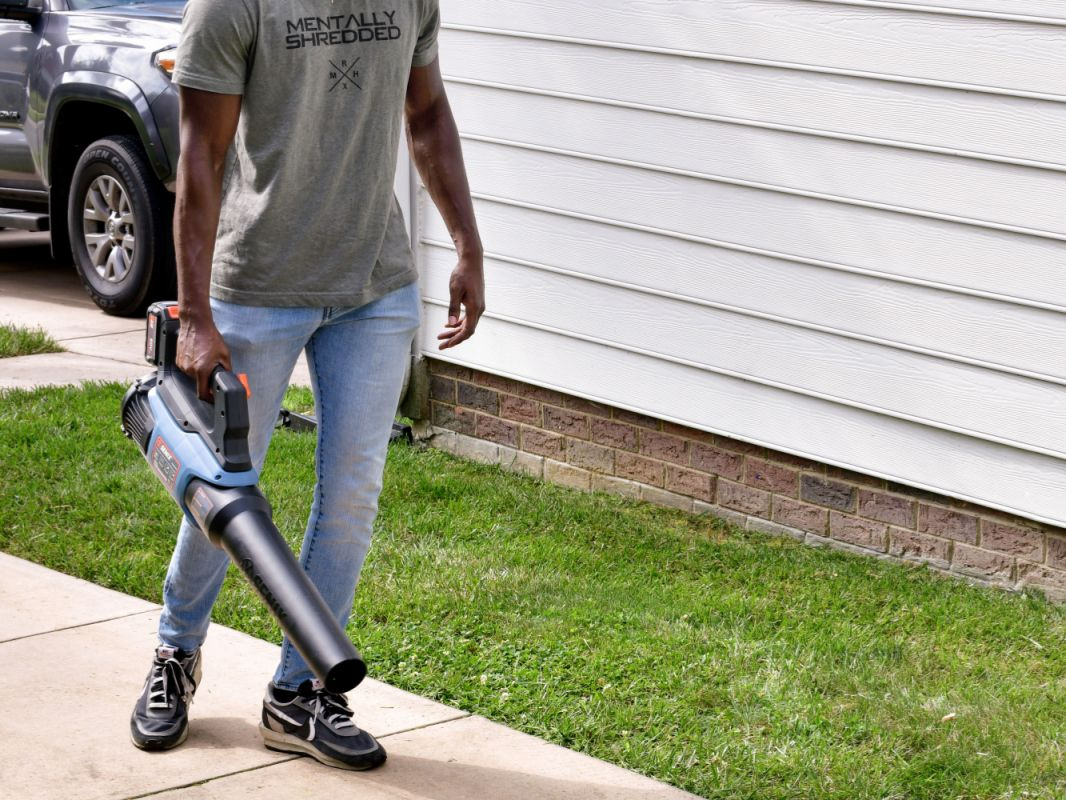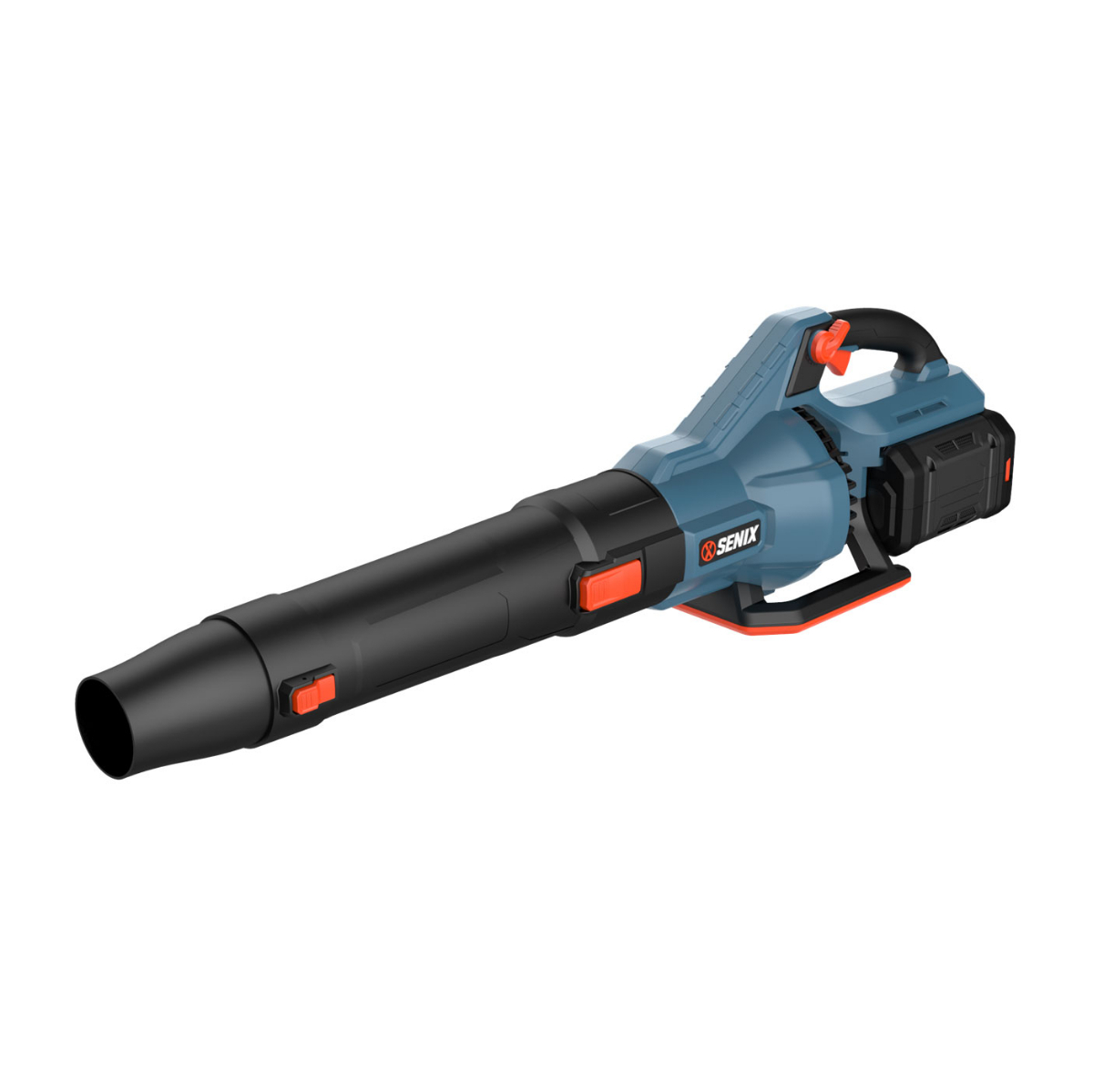6 Tips to Choose the Blower for Garden
To help you make the right decision, here are 6 essential tips to keep in mind when choosing a blower for your garden.

Gas, Electric, or Battery-Powered?
Blowers come in three main power options: gas, electric, and battery-powered. Each type has its own advantages and drawbacks, so think about which one aligns best with your needs.
Gas Blowers
- Powerful: Great for large yards or heavy-duty tasks.
- No Cord: Perfect for areas with no nearby power source.
- Heavy and Noisy: Typically bulkier and louder, requiring regular maintenance.
Electric Blowers
- Lightweight: Easy to maneuver and ideal for small to medium-sized gardens.
- Corded: Limited by the length of the cord, but offers consistent power without recharging.
- Quiet: Quieter operation compared to gas models.
Battery-Powered Blowers
- Portable: Lightweight and cordless, ideal for smaller spaces and quick jobs.
- Limited Run Time: Battery life may not be sufficient for long or intensive use, but newer models offer longer run times.
- Eco-Friendly: No emissions, and generally quieter than gas blowers.
Determine the Airflow and CFM
Airflow is one of the most important factors to consider when choosing a blower. CFM (Cubic Feet per Minute) refers to the volume of air the blower moves, and a higher CFM means the blower can move more debris in less time.
- Light Tasks: For light jobs like clearing leaves from a driveway or patio, a blower with a CFM of 200-400 is usually sufficient.
- Heavy-Duty Tasks: For clearing thick piles of leaves or debris in a large yard, you may need a blower with a CFM of 400-600 or more.
Generally, gas-powered blowers tend to have higher CFM ratings compared to electric or battery models, but newer battery-powered blowers are catching up in performance.
Check the MPH Rating
MPH (Miles per Hour) indicates the speed at which the blower expels air. Higher MPH ratings allow you to move stubborn debris more effectively, but it’s not the only factor to look at. The combination of high CFM and MPH is what makes a blower truly effective.
- Low to Moderate MPH: For light tasks like grass clippings or leaves on hard surfaces, 150-200 MPH is usually sufficient.
- High MPH: For more stubborn, wet leaves or heavy debris, a blower with an MPH rating of 200-250 or higher will work better.
Look for Ergonomics and Comfort
You’ll likely be using your blower for extended periods, so comfort is key. Choose a blower that feels comfortable to hold and use. Consider the following factors:
- Weight: Lightweight blowers are easier to handle, especially for prolonged use. Electric and battery-powered models tend to be lighter than gas blowers.
- Handle Design: A padded handle and adjustable features can help reduce strain on your hands and arms.
- Vibration Control: Gas blowers, in particular, can generate more vibrations. Look for blowers with vibration-reducing features for more comfort during use.
Consider Noise Level
If you're sensitive to noise or live in a residential area with noise restrictions, you’ll want to pay attention to the noise level of the blower. Gas blowers tend to be the loudest, while electric and battery-powered blowers are much quieter.
- Gas-powered blowers can reach sound levels of 70-75 dB or more.
- Electric models typically operate at 60-70 dB.
- Battery-powered blowers are often the quietest, with sound levels as low as 55-65 dB.
If you’re looking for a quieter option that won’t disturb neighbors, an electric or battery-powered blower is a better choice.
Think About Additional Features
Blowers have evolved over time and now come with a variety of features designed to make your gardening tasks even easier. Here are a few extras to consider:
- Variable Speed Control: Allows you to adjust the airflow for different tasks, giving you greater control over your work.
- Vacuum and Mulching Function: Some blowers can convert into a vacuum or mulcher, which is useful for cleaning up leaves and turning them into mulch.
- Turbo or Boost Mode: Provides a temporary increase in airflow to help move heavy or wet debris.
Nozzle Attachments: Different nozzles help to focus airflow for better precision when cleaning tight spaces or stubborn spots.
Recommendation

60V Brushless 1380m³/h Blower
BUY NOW
Final Thoughts
The best blower for your garden ultimately depends on the size of your yard, the tasks you plan to perform, and your personal preferences. Here’s a quick recap of what to keep in mind:
- Gas-powered blowers are best for large yards with heavy debris.
- Electric blowers are perfect for smaller gardens and quieter operation.
- Battery-powered blowers are ideal for portability and convenience, though you may have to recharge after prolonged use.
By considering factors like power source, CFM, MPH, and comfort, you can find a blower that will make your gardening tasks easier and more efficient. With the right blower, you'll spend less time cleaning up and more time enjoying your outdoor space!


 (5.0)
(5.0)

